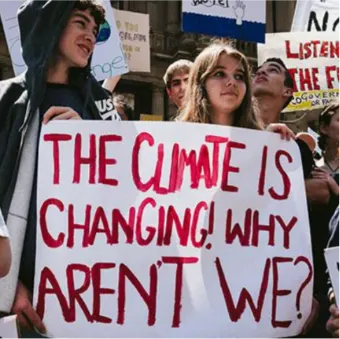Teacher: Scott Sinclair

Scott Sinclair
Scott is now retired but started his teaching career as a geography teacher. Whilst inspiring the next generation of young people in Birmingham schools Scott also helped to set up the teacher network: Tide~ global learning. The network has now been running for 50 years. Thousands of teachers have been involved in creative groups at the core of the network with many groups developing resources which are still being shared and used across and beyond the network. Scott is still heavily involved in the network using his time to facilitate dialogue about the educational implications of climate change. Scott believes in the need for education-driven agendas which respond to the climate crisis and are linked to the need for dialogue about ‘Teacher Entitlement’. This could complement and build on climate campaign-driven agendas. It goes beyond just better teaching about the climate. It is about the development of opportunities that equip learners, and society, for a future that will be impacted by climate change and the consequences of that change.
Usefull links related to the Solution
Overview
Tide global learning is a teacher run, teacher-centred network. Recent work has focused on increasing dialogue around climate change education and supporting teacher entitlement in the pursuit of more teacher agency, quality education, and increasing climate change education for learners.
Theory of Change
Tide is facilitating dialogue around climate change education with an eye on system-level change – including consideration of learner needs, teacher entitlement, schools as organisations and wider educational matters. Tide is open to creativity and recognises that there is a need for a long-term outlook, preparing students for a greener economy and changes in local and global realities. There is a strong focus on targeting changes which would increase teacher agency to allow teachers to respond nimbly and, in a context-specific way, to their learners’ needs whilst also meeting other more traditional learning requirements.
Approach and Actions
Tide has been running as an organisation for over 40 years and has always acted to provide space to support teacher creativity. One example of such a creative process is the successful model the ‘Development Compass Rose’. This was developed to support teachers and learners to enquire more deeply about the connections between the environmental; social; and economic elements; and power dynamics which exist, for example, in climate change issues. In more recent years Tide has focused more sharply on its networking capabilities for facilitating climate change education dialogue. In November 2022, a year after COP26, the Teachers network started a series of online conversations around five climate change education-related questions, this provided a space for ideas to be exchanged and for discussion to take place. In response to these conversations, a series of articles were published in Tide’s ‘Elephant Times’ magazine. The discussions that have arisen around this topic take a broad view on climate change education, viewing the need for students to engage with complex global systems and to critically assess situations as being integral to them being competent to interact, in a meaningful way, with the complex and changing issues involved in climate change.
Impact
Tide has, on a limited scale, created space for teachers to learn, discuss and debate climate change education issues and this has contributed to more input from various sources in the debate. Their work has also contributed to the setting up of conferences and other events looking at climate change education. Work now is focusing on how best to scale up such a process to enable wider dialogue. Tide’s experience has endorsed the process approach and the proposition that an education-driven agenda responding to the climate crisis could add value to the ‘solutions agenda’. It would complement, and be stimulated by, other climate crisis responses – but have a distinctive focus on the functions of education and change in schools. Essential to this is the need to further define teacher entitlement and the processes involved.



